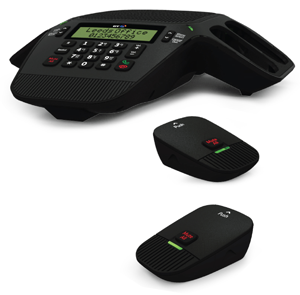Unify, has announced general availability of the latest version of its OpenScape Enterprise solutions which should excite ICT resellers keen to offer customers fully joined up collaboration solutions
The vendor says key updates to OpenScape UC and OpenScape Voice include an intuitive user interface, with security and reliability improvements to ensure employees working flexibly can easily collaborate to solve problems and achieve results.
"Today's workers want technology that enables them to easily communicate with teams," said Peter Kürpick, executive vice president of Products at Unify. "The latest enhancements to our OpenScape Enterprise portfolio meet these needs, head on. With its intuitive user interface and enhanced security, and reliability, the solution raises the bar for technology that enables teams to stay connected and collaborate seamlessly.
"The redesigned user interface and new capabilities in the latest version of OpenScape Enterprise enhance the collaboration experience and have helped streamline our internal systems," said Frederic Burger, competence group leader of engineering, Swisscom Communication Business.
"We're using the solution for our live demo that our presale and engineering teams use to show our products. We expect our customers will be very excited about this new interface once they see it."
Acording to Unify the latest version of OpenScape UC includes a redesigned user interface to enhance the user experience and improve productivity. Leveraging the design principles used for Project Ansible -Unify's upcoming real-time collaboration platform-OpenScape UC is workflow and collaboration oriented to provide a more productive experience. The solution brings virtual teams together with rich federated presence, mobility, one number service, application plug-ins, and audio/web/desktop video conferencing capabilities. To further support mobile Anywhere Workers, OpenScape UC is now available for Android tablets and the iPad, as well as iOS, Android, Blackberry, and Windows smartphones.
The latest release of OpenScape Voice is said bring key enhancements designed to increase security, reliability and interoperability.
Highlights include:
- SIP Connect 1.1 compliance. This is an industry-wide recommendation developed by the SIP Forum ensuring compatibility between SIP-enabled platforms (such as OpenScape Voice) to VoIP Service Provider networks for improved interoperability. The recommendation has gained international support from BITKOM in Germany and NICC in the UK.
- SIPQ Version 2 which provides additional support for multi-vendor networks where integration of third party PBX systems allows customers to leverage existing investment.
- Trusted business groups for hosted and cloud deployments, ensuring business applications are easily and securely partitioned by specific user communities.
- More automation for branch offices. A configuration capability automatically synchronizes user data, which speeds deployment and reduces configuration errors.

 Joel joins from BT Group, where he recently worked as Head of Customer Experience. Having worked for BT for 10 years, Joel has held a variety of senior roles including Head of Business Development in BT Wholesale, CX Service and Solution Design Lead in BT Business, and Customer Experience Lead in Openreach.
Joel joins from BT Group, where he recently worked as Head of Customer Experience. Having worked for BT for 10 years, Joel has held a variety of senior roles including Head of Business Development in BT Wholesale, CX Service and Solution Design Lead in BT Business, and Customer Experience Lead in Openreach. Channel service provider Eclipse has launched a hosted version of Microsoft Lync available on a per user per month basis.
Channel service provider Eclipse has launched a hosted version of Microsoft Lync available on a per user per month basis. Nimans hopes resellers will take advantage of a special bundle offer combining a BT conferencing unit with an 'easy use' sim-free mobile phone.
Nimans hopes resellers will take advantage of a special bundle offer combining a BT conferencing unit with an 'easy use' sim-free mobile phone. Campbell Williams, Group Strategy and Marketing Director, Six Degrees Group, said: "Process efficiency and taxpayer value are key drivers for the public sector. LHC does an excellent job of helping councils, LAs and public sector bodies across the country to procure the best options for their building projects. It's therefore vital that the service they offer is supported by high quality and reliable infrastructure that can help them to do what they do best."
Campbell Williams, Group Strategy and Marketing Director, Six Degrees Group, said: "Process efficiency and taxpayer value are key drivers for the public sector. LHC does an excellent job of helping councils, LAs and public sector bodies across the country to procure the best options for their building projects. It's therefore vital that the service they offer is supported by high quality and reliable infrastructure that can help them to do what they do best."